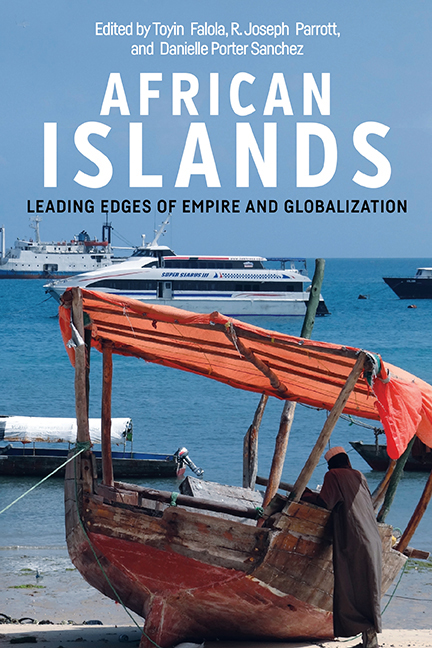Introduction: Arbiters and Witnesses of Change: Contextualizing Conversations on African Islands
Published online by Cambridge University Press: 31 August 2019
Summary
Amílcar Cabral is the founding father of two countries: the island nation of Cabo Verde and the mainland state of Guinea-Bissau. As the first and most influential leader of the Partido Africano da Independência da Guiné e Cabo Verde (African Party for the Independence of Guinea and Cabo Verde, or PAIGC), Cabral spent much of his life trying to achieve independence for two places that he considered home. While they are two separate countries today, the revolutionary Cabral envisioned a single postcolonial nation that would unite the former Portuguese possessions. The metropole had for centuries viewed the colonies as uniquely interrelated, using the more assimilated and racially mixed populations of the islands of Cabo Verde to help administer the mainland in Guinea, where relatively few Europeans had settled. Cabral was born in Portuguese Guinea to Cabo Verdean parents filling such intermediary roles, and it therefore seemed natural for him to envision a united struggle. Cabral fought to bring independence to two colonies connected—not separated—by water and shared history.
Cabral's biography is important here because his revolutionary ideology owes much to his ambiguous relationship with his own island identity. Cabo Verde had not been permanently inhabited when the Portuguese first settled the archipelago in the fifteenth century. The culture that surrounded Cabral during his formative years grew from the intermixing of Europeans and enslaved Africans brought from the mainland. By the time of Cabral's birth, a majority of its population claimed a mixed-race heritage and received privileges associated with Portuguese citizenship, though insufficient education and dire poverty on the drought-prone islands prevented any claims to true equality with the metropolis. Rather, the archipelago existed somewhere between Europe and Africa. By embracing this latter heritage, Cabral rejected Portuguese domination, claiming an historically informed identity that tied the islands directly to the African continent despite centuries acting as an intermediary. This vision of unity proved vital for the success of the revolution. The archipelago was too closely controlled by the Portuguese to launch a large-scale guerrilla movement, so the PAIGC looked to Guinea-Bissau when planning its armed independence struggle. In 1963, the PAIGC launched a revolution on the mainland with an army of mostly local soldiers led disproportionately by Cabo Verdeans.
- Type
- Chapter
- Information
- African IslandsLeading Edges of Empire and Globalization, pp. 1 - 36Publisher: Boydell & BrewerPrint publication year: 2019

